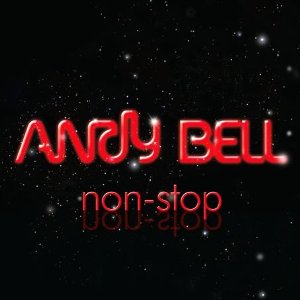A funny thing has happened to Erasure: it may now be – lawks! – some three years since Light At The End Of The World, but, without needing to actually do anything, they’ve somehow become more contemporary than they’ve been, frankly, ever. After all, the vast majority of this year’s outstanding albums contain a truckload of electronics at the very least (and that extends from older hands like Hot Chip and Goldfrapp to such spectacular new tykes as Grum and O’Spada and well beyond), anyone keen to debate that this is a golden age for flamboyance is directed to the rebutting triple whammy of the ‘Telephone’, ‘Acapella’ and ‘Rude Boy’ videos, and there’s a strong argument that claims that the last couple of years have seen more brilliant singles from chap duos than any time in recent memory (consider, if you will, the Presets’ ‘This Boy’s In Love’, The Sound Of Arrows’ ‘Into The Clouds’ or the Bag Raiders’ ‘Shooting Star’, and that’s before we even get to Hurts or Monarchy). Frankly, Andy Bell should be poised to absolutely clear up here.
Yet right from the word go he manages to hamstring himself in, ironically, an effort to appear to have moved with the times. In fairness, the whole treated-voices phenomenon made sense on 808s And Heartbreaks given the concept of the album, but, post-Kanye, even performers who no-one at all was crying out for modulation for (Mariah Carey? Mary J Blige? Really?) have taken its faux futurism to heart, and lo! Bell falls into exactly the same trap here, meaning that opener ‘Running Out’ makes for jarring listening from the outset, particularly on some mangled "oh-oh"s, and the fact that it continues into ‘Call On Me’ – no, not that ‘Call On Me’ – in increasingly-drowning-sounding fashion is actually somewhat heartbreaking, which, for such an avowedly positivist track, is a grave error.
Admittedly, its sister track ‘Will You Be There?’ is a more encouraging affair, geared as it is to a particularly sweaty dancefloor and employing house dynamics, brashly technicolor synths and, in a burbly flash of inspiration, a thrillingly patient 303 to remind the listener that, actually, we’re dealing with someone whose pop instincts, when unabashedly acted on, are very keen indeed. There’s other evidence of this too, thankfully. ‘Subject/Object’ is marginally indebted to both ‘Leave A Light On’ (in its melody) and ‘Cambodia’ (in its pacing), lyrically as effectively evocative and fulsomely emotionally engaged as the album gets, and prone to a glamorous pad that entices throughout, especially in the sashaying, somewhat stellar instrumental break, and ‘Slow Release’ is by some way the best track here, far more downtempo than its surroundings, almost as if it’d fallen off an early Talk Talk album, and possessed of some wonderfully impassioned vocals.
However, it still doesn’t build up enough reserves of goodwill to entirely accommodate the missteps that follow: ‘Touch’ includes an inconsistently-deployed mockernee accent for no good reason, ‘DHDQ’, while undoubtedly sincere in its desire to homage both Debbie Harry and drag queens (hence the name, obviously), borders unwisely on the tacky and trifling throughout, and grand finale ‘Honey If You Love Him (That’s All That Matters)’ is theatrical to an unexpectedly laboured degree, its affectations a shadow of Annie Lennox’s similar gameplay on ‘Beethoven’ and its dff-dff-dff complacency and retreat to vocodered ennui rendering the whole experience creepily carcrash. It’s not a wholly disastrous album, and, to be fair, Bell’s pulled himself out of much worse creative troughs than this before (consider how the properly world-beating Nightbird took him out of the post-Pop! doldrums), but the overwhelming impression here is that he’s alarmingly adrift in a solo context; really, we suspect that had someone been on hand to assist, they’d have told Bell to, well, stop…


